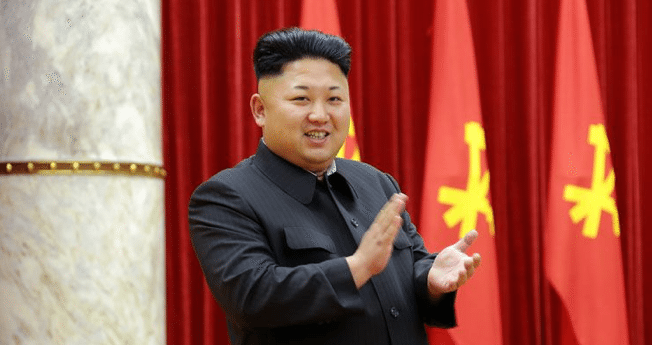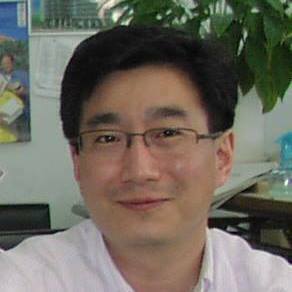
Kim’s New Year’s address indicates bumpy road for inter-Korean ties
Leader's latest address displays new-found independence from the legacy of his father, grandfather
Since 2013, for the last three years Kim Jong Un has used his New Year’s address to speak of North Korea’s prospects and its policy conceptions. Obviously, as North Korea’s governmental system is different from other parts of the world, their annual address does not always correspond to what they said in the early days of the year. Often, Kim’s oration ends up as nothing but rhetoric.
But researchers can’t skip analysis of Kim’s words, as the message comes from the one and onlySuryong, the Supreme Leader, giving important clues as to which direction North Korea will head in this year.
‘KIM JONG UN-STYLE RHETORIC’
One thing that is significantly different about Kim Jong Un’s 2016 address is that the nuance of the speech has a subtle distinction compared to that of previous ones.
North Korea’s New Year’s address hasn’t been the same each time, and every year the leader has provided a different speech guiding the country in a different direction. For this year’s address, Kim Jong Un has used his own style of political rhetoric that no longer seems bound to his predecessors.
Since 2012, the year when Kim Jong Un started ruling North Korea, mentions of Kim Il Sung and Kim Jong Il have been fixed contents of Kim Jong Un’s speeches.
The former leaders’ names were mentioned only four times throughout the whole address
But since 2015’s address, the mentions of the former leaders have declined in frequency and their names replaced by other terms, such as Suryong or “General.”
The same thing happened in 2016’s address, as both former leaders’ names were not directly mentioned, but were only briefly spoken of as a parts of sentences such as “Kim Il Sung-Kim Jong Il military tactical strategies” or “the Kim Il Sung-Kim Jong Il working class.” The former leaders’ names were mentioned only four times throughout the whole address.
This change shows that Kim Jong Un’s base of legitimacy is still laying in his “Paekdu bloodline,” coming from his predecessors, but he will no longer depend only on his predecessors, and start to stand as the one and only perfect figure, the Suryong of North Korea.
LESS ‘MILITARY-FIRST’
The North Korean leadership’s effort to break free from the “military-first policy” had already begun at the end of Kim Jong Il’s era. But the real effort to break free took place under Kim Jong Un’s rule.
The word Songun, or “military-first” policy, was only mentioned twice in this year’s address. We can say that this is Kim Jong Un’s intent, to decrease the excessive political influence of high-ranking officers of the North’s Korean People’s Army. In some ways, the word Songun should no longer be read as the supreme status of military officials in North Korean society, but just the political word that unites today’s North Korean society.
ECONOMIC CONFIDENCE
Economic coverage in this year’s address was generally similar to that of last year.
One thing that stands out is that Kim Jong Un urged the people to produce “more high-quality products that are competitive in the global market.” This quote shows an important difference from 2015’s address, during which Kim Jong Un ordered the country’s factories and companies to be less dependent on importing goods, but to fight to localize raw materials, building materials and equipment.
Of course, there is a chance that this might be more typical North Korean rhetoric. But overall, in the 2016 address, Kim Jong Un’s confidence in managing the nation’s independent economic structure could be clearly read.
FOREIGN, SOUTHERN RELATIONS
Readers must observe closely that Kim Jong Un emphasized “building strength by one’s self” during his address.
One can argue that it was just a general statement that Kim made, but looking back at recent China-North Korea relations, this can be read as an indirect message from Pyongyang to Beijing.
The recent cancellation of the Moranbong Band’s concert, which was to be held in Beijing, shows the present state of relations between the two. Both need each other for the future, but neither will be able to fully trust the other.
Kim’s oration this year also showed revulsion and regret toward the U.S.
Kim Jong Un has blamed U.S as the root of the rising tension in the Korean Peninsula and the East Asian region.
“The U.S has adamantly turned away from our effort to lessen the tension in Korean Peninsula, by changing current ceasefire agreement in to peace treaty, as we have suggested numerous times,” said Kim Jong Un during this year’s address.
The inter-Korean relations of 2016 look bumpy based on Kim’s speech
“The U.S. has been depending on anti-North Korea policy to raise tensions between two, and the U.S.’s followers have been clinging on their efforts to claim the violation of human rights in our country.”
This can be read as the North’s slandering of U.S. policy, but at the same time, it suggests that North Korea’s thirst to establish a direct communication window with the U.S. is very desperate.
While Kim’s address in 2015 included the possibility of summit talks between two countries, this year Kim only mentioned the need for South Korea to change its attitude toward North Korea and how the chances of a conversation can alter according to South’s intent to change.
This message cannot be read as anything close to North Korea’s intent to actively continue talks with the South. The inter-Korean relations of 2016 look bumpy based on Kim’s speech.
WHAT CHOICE TO MAKE?
The three main directions of North Korean policies could be hinted at in this year’s address. First, in domestic policy, Kim Jong Un will try to get away from the halo effect of his predecessors and build up his own “Kim Jong Un-style of governing” to make his policies appeal to North Koreans.
To call for a massive shift between generations of North Koreans, Kim Jong Un seems likely to get aggressive in his “love for the people policy” targeting the youth.
In inter-Korean policy, Kim Jong Un would leave the window of communication opened, but will most likely not show any sign of yielding in negotiations, and such actions are expected to induce anxiousness in South Korean policymakers.
Translated by JH Ahn from Cha’s blog and Facebook account.
Featured image: KCNA

No comments:
Post a Comment